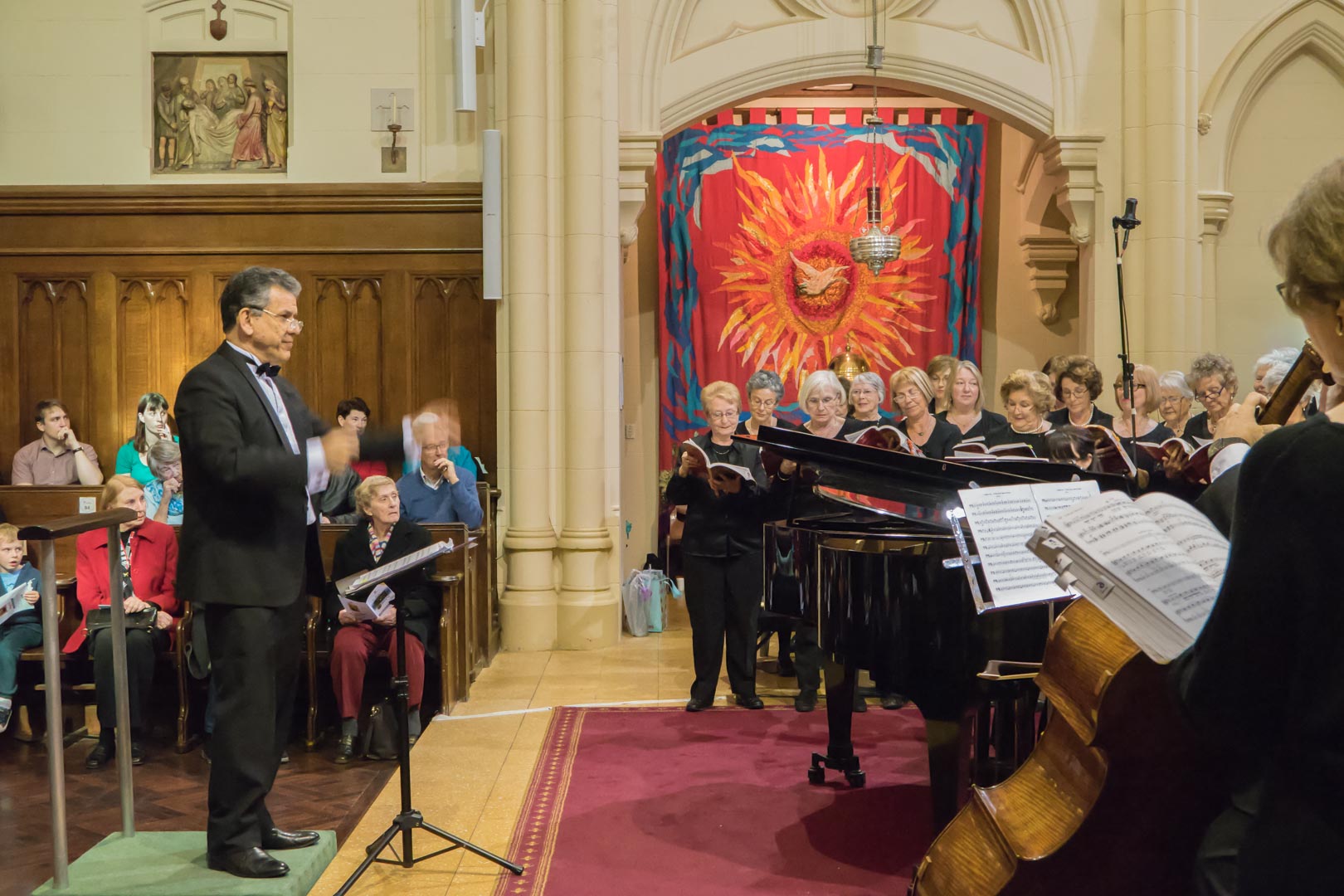 This afternoon’s concert proved something of a triumph in more ways than one. For a start, the weather was perfect for the drinks and nibbles on the terrace afterwards. Secondly, the soloists were terrific. Thirdly, we in the Choir acquitted ourselves very well by singing most pieces better than we had ever sung them in rehearsal.
This afternoon’s concert proved something of a triumph in more ways than one. For a start, the weather was perfect for the drinks and nibbles on the terrace afterwards. Secondly, the soloists were terrific. Thirdly, we in the Choir acquitted ourselves very well by singing most pieces better than we had ever sung them in rehearsal.
Best of all, it was quite clear from the audience’s response that we gave a lot of people a most enjoyable Sunday afternoon. Musically the concert was up to our usual quality, if the applause was anything to go by. And socially, that we were still clearing up over an hour after the end of the concert suggests that people were more than happy to linger over drinks in such a pleasant atmosphere.
For this correspondent, there were a number of highlights. Joel Scott’s singing was amazingly fluent and varied in mood. His voice has a lovely timbre, which he flexed to create moments of tenderness and others of passion. Kathryn Williams brought the house to its feet at one point with a brilliant display of coloratura, yet also merged in with the Choir most effectively. The Choir sang confidently throughout, with firm entries and clear cut-offs, following Carlos’ directions to give the music light and shade. Singing through the Porgy and Bess Suite without stopping for not quite the first time was quite a bonus.
The afternoon had many stars. Kathryn, Joel, the Choir, and of course Carlos, on whose shoulders rests the full responsibility of making the afternoon a success. If there was to be a prize for the hardest working person, it would unquestionably go to Angela Ferguson, our accompanist. We have become so used to her coping at rehearsals with anything she might be asked to play that we almost take her for granted. But today was a performance, not a rehearsal, and she played a succession of very difficult and complex piano reductions of orchestral scores to a demanding performance standard.
It has been fun to sing these operatic excerpts. They have been difficult to learn, especially the French and Italian words. But, once learnt, they have almost sung themselves. Most importantly, the audience clearly felt that they formed an ideal program for a sunny winter’s afternoon.
Thank you to Mark Renton for the photo at the top of the page. For some more photos, click here.
